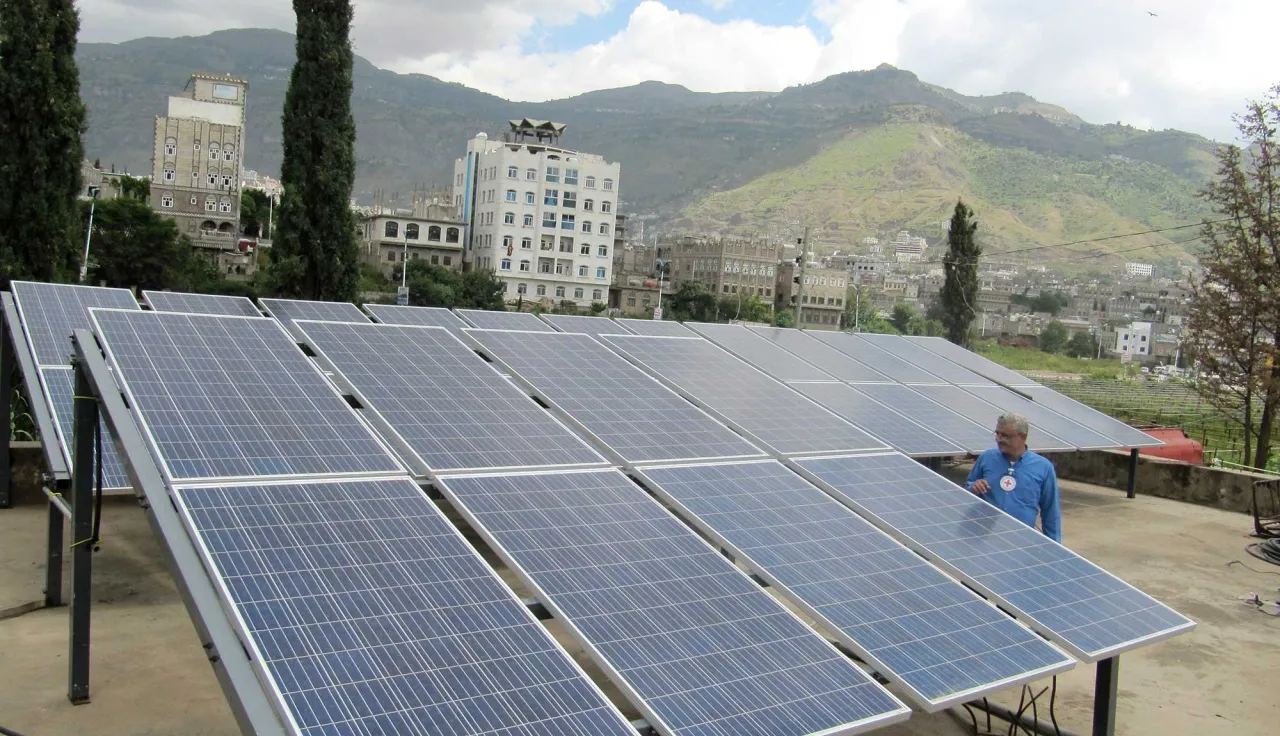Sustainable development at the ICRC

Looking into the future, sustainable development is a fundamental guiding principle for how we deliver aid to victims of armed conflict and other violence. The health and well-being of our beneficiaries and local communities in countries in which we operate is intrinsically linked to the state of the natural environment.
This is why we strive to incorporate sustainability into all our ICRC activities to maximize the positive impact of humanitarian aid and accountability through suitable, sustainable and effective action.
What we do
Guided by the framework for sustainable development at the ICRC, our work focuses on three areas and is supported by the following commitments:
Social sustainability
- Reduce the impact of environmental degradation and climate change on the victims of conflict and violence.
- Be a socially responsible partner in our interactions with all stakeholders (beneficiaries, staff, suppliers, State and non-State entities, donors).
Environmental sustainability
- Monitor and reduce the environmental footprint of the ICRC’s operational and support activities.
Economic sustainability
- Manage financial resources ethically and optimally
How do we do it?
We…
- Systematically examine the economic, social and environmental consequences of our policies and activities and report on it biennially
- Incorporate sustainability principles into the design and implementation of assistance programmes
- Ensure that the ICRC staff support sustainable development and practice it in their work
- Optimize the logistics chain to be able to deliver quality assistance needed by our beneficiaries on time and in the right place
- Use new technologies and solutions to reduce the ICRC’s ecological footprint
- Apply rules and principles of responsible people-management strategy to address the diverse needs of all staff
- Apply an ethical purchasing policy to ensure that acquired products were manufactured under acceptable conditions in terms of both social and environmental compliance
- Adhere to the rules and principles of ethical conduct in the management of the financial resources
Examples of specific initiatives and performance indicators can be found in the Sustainable Development Biennial report /2015-2016.



